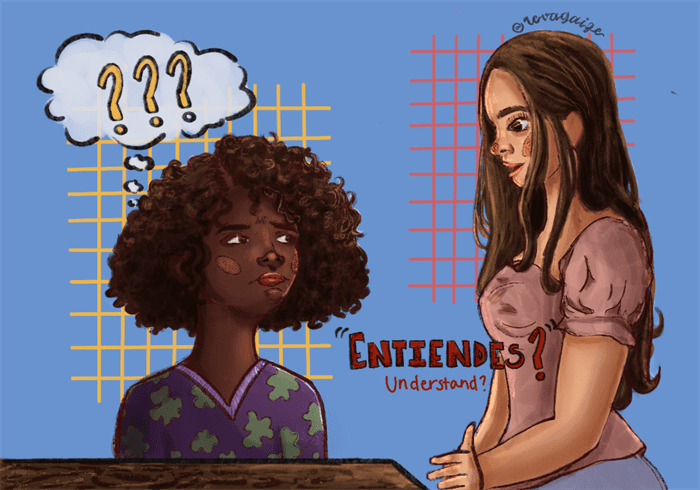According to Urban Dictionary, the term “no sabo” refers to Hispanic people that speak very limited to no Spanish. In linguistic terms, it’s a common mistake many people learning Spanish make when trying to conjugate the verb “saber,” which means “to know.” The phrase is often used to embarrass children of Spanish-speaking parents who were never taught the language.
Making such remarks is extremely insulting to the Hispanic and Latino community.
Sadly, it seems to be the punchline of the century to many TikTok users, whose favorite joke is recreating how non-Spanish speakers with Hispanic parents would fail miserably to adjust to their home country’s culture. If you are one of these people that goes around making fun of people’s well-intentioned efforts to learn about their heritage, let me pop your ignorant, bliss-filled bubble for a second.
By using such an insult, you are implying that a person’s ability to belong and connect with their culture is based on their proficiency to speak their home country’s language. This couldn’t be farther from the truth. There are a plethora of reasons as to why Hispanic parents, as well as guardians within immigrant households, avoid sharing that part of themselves with their children.
For one, Hispanic and Latino parents could be out of touch with their cultures or they just never learned Spanish at all. According to the Pew Research Center’s 2015 National Survey of Latinos, 53% of the second-generation Hispanic parents “often” encourage their children to speak Spanish. When the third or higher generation Hispanic parents were questioned, only 41% picked “often.”
Pew Research further explains that “Spanish use also declines in mixed families where one spouse or partner is non-Latino.” Just 55% of Latino parents with a non-Latino partner speak Spanish to their children.
Parents could also fear that their children will face repercussions for expressing where they’re from. The FBI’s 2019 Hate Crime Statistics reported that there were 3,963 victims of race, ethnicity or ancestry motivated hate crimes, 13.3% of those being victims of anti-Hispanic or Latino bias.
I have seen firsthand the fear in my mother’s face whenever she felt she couldn’t speak Spanish because something might happen. The microaggressions, fetishization and criticisms deeply rooted in our society are enough to intimidate a person into hiding who they are, even morphing themselves into something they’re not.
Judging someone who’s acting purely on survival instinct knowing this country’s history of racism and xenophobia toward immigrants and minority groups is lacking basic human compassion.
To understand how embarrassing the lack of tact is when it comes to making such comments, we must discuss the difference between identifying as Hispanic, Latino or both. Hispanic people are those that come from Spanish-speaking countries. This means the majority of South and Central America, in addition to Spain, Mexico and some Caribbean countries, identifies as Hispanic.
On the other hand, Latinos are those that come from Latin America, which covers Mexico, the Caribbean and Central and South America. So yes, Brazilians, Haitians and Indigenous groups, amongst other people from varied backgrounds within Latin America, are still Latinos.
With all of this in mind, it is more than clear why the argument that one needs to know Spanish to claim their Latino or Hispanic heritage is baseless and quite honestly a most uneducated view of our widely diverse countries.
My dear Hispanics, this is not a private members club in which you get to pick and choose who is more “Hispanic” or “Latino.” By claiming that Latinos exclusively speak Spanish, you are erasing the hundreds of languages spoken by Indigenous groups and minority groups in Latin America.
Additionally, we have no place to judge those who have refrained from speaking or learning Spanish — unless we want to be hypocrites, that is.



